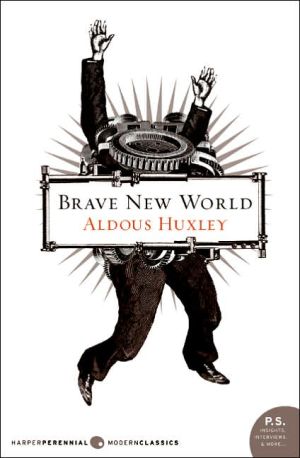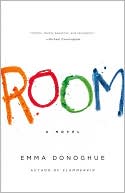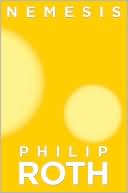Brave New World
Huxley´s vision of the future in his astonishing 1931 novel Brave New World -- a world of tomorrow in which capitalist civilization has been reconstituted through the most efficient scientific and psychological engineering, where the people are genetically designed to be passive, consistently useful to the ruling class.
Search in google:
Huxley s vision of the future in his astonishing 1931 novel Brave New World -- a world of tomorrow in which capitalist civilization has been reconstituted through the most efficient scientific and psychological engineering.Saturday Review of LiteratureMr. Huxley is eloquent in his declaration of an artist's faith in man, and it is his eloquence, bitter in attack, noble in defense, that, when one has closed the book, one remembers.
Chapter One\ \ A squat grey building of only thirty-four stories. Over the main entrance the words, CENTRAL LONDON HATCHERY AND CONDITIONING CENTRE, and, in a shield, the World State's motto, COMMUNITY, IDENTITY, STABILITY.\ The enormous room on the ground floor faced towards the north. Cold for all the summer beyond the panes, for all the tropical heat of the room itself, a harsh thin fight glared through the windows, hungrily seeking some draped lay figure, some pallid shape of academic goose-flesh, but finding only the glass and nickel and bleakly shining porcelain of a laboratory. Wintriness responded to wintriness. The overalls of the workers were white, their hands gloved with a pale corpse-coloured rubber. The fight was frozen, dead, a ghost. Only from the yellow barrels of the microscopes did it borrow a certain rich and living substance, lying along the polished tubes like butter, streak after luscious streak in long recession down the work tables.\ "And this," said the Director opening the door, "is the Fertilizing Room."\ Bent over their instruments, three hundred Fertilizers were plunged, as the Director of Hatcheries and Conditioning entered the room, in the scarcely breathing silence, the absentminded, soliloquizing hum or whistle, of absorbed concentration. A troop of newly arrived students, very young, pink and callow, followed nervously, rather abjectly, at the Director's heels. Each of them carried a notebook, in which, whenever the great man spoke, he desperately scribbled. Straight from the horse's mouth. It was a rare privilege. The D.H.C. for Central London always made a point of personally conducting his new students roundthe various departments.\ "Just to give you a general idea," he would explain to them. For of course some sort of general idea they must have, if they were to do their work intelligently — though as little of one, if they were to be good and happy members of society, as possible. For particulars, as every one knows, make for virtue and happiness; generalities are intellectually necessary evils. Not philosophers but fretsawyers and stamp collectors compose the backbone of society.\ "To-morrow," he would add, smiling at them with a slightly menacing geniality, "you'll be settling down to serious work. You won't have time for generalities. Meanwhile . . ."\ Meanwhile, it was a privilege. Straight from the horse's mouth into the notebook. The boys scribbled like mad.\ Tall and rather thin but upright, the Director advanced into the room. He had a long chin and big rather prominent teeth, just covered, when he was not talking, by his full, floridly curved lips. Old, young? Thirty? Fifty? Fifty-five? It was hard to say. And anyhow the question didn't arise; in this year of stability, A.F. 632, it didn't occur to you to ask it.\ "I shall begin at the beginning," said the D.H.C. and the more zealous students recorded his intention in their notebooks: Begin at the beginning. "These," he waved his hand, "are the incubators." And opening an insulated door he showed them racks upon racks of numbered test-tubes. "The week's supply of ova. Kept," he explained, "at blood heat; whereas the male gametes," and here he opened another door, "they have to be kept at thirty-five instead of thirty-seven. Full blood heat sterilizes." Rams wrapped in theremogene beget no lambs.\ Still leaning against the incubators he gave them, while the pencils scurried illegibly across the pages, a brief description of the modern fertilizing process; spoke first, of course, of its surgical introduction- -"the operation undergone voluntarily for the good of Society, not to mention the fact that it carries a bonus amounting to six months' salary"; continued with some account of the technique for preserving the excised ovary alive and actively developing; passed on to a consideration of optimum temperature, salinity, viscosity; referred to the liquor in which the detached and ripened eggs were kept; and, leading his charges to the work tables, actually showed them how this liquor was drawn off from the test-tubes; how it was let out drop by drop onto the specially warmed slides of the microscopes; how the eggs which it contained were inspected for abnormalities, counted and transferred to a porous receptacle; how (and he now took them to watch the operation) this receptacle was immersed in a warm bouillon containing free-swimming spermatozoa — at a minimum concentration of one hundred thousand per cubic centimetre, he insisted; and how, after ten minutes, the container was lifted out of the liquor and its contents reexamined; how, if any of the eggs remained unfertilized, it was again immersed, and, if necessary, yet again; how the fertilized ova went back to the incubators; where the Alphas and Betas remained until definitely bottled; while the Gammas, Deltas and Epsilons were brought out again, after only thirty-six hours, to undergo Bokanovsky's Process.\ "Bokanovsky's Process," repeated the Director, and the students underlined the words in their little notebooks.\ One egg, one embryo, one adult-normality. But a bokanovskified egg will bud, will proliferate, will divide. From eight to ninety-six buds, and every bud will grow into a perfectly formed embryo, and every embryo into a fall-sized adult. Making ninety-six human beings grow where only one grew before. Progress.\ "Essentially," the D.H.C. concluded, "bokanovskification consists of a series of arrests of development. We check the normal growth and, paradoxically enough, the egg responds by budding."\ Responds by budding. The pencils were busy.\ He pointed. On a very slowly moving band a rack-full of test-tubes was entering a large metal box, another rack-fall was emerging. Machinery faintly purred. It took eight minutes for the tubes to go through, he told them. Eight minutes of hard X-rays being about as much as an egg can stand. A few died; of the rest, the least susceptible divided into two; most put out four buds; some eight; all were returned to the incubators, where the buds began to develop; then, after two days, were suddenly chilled, chilled and checked. Two, four, eight, the buds in their turn budded; and having budded were dosed...
ForewordBrave new world3Foreword5Brave new world revisited233Foreword235IOver-population237IIQuantity, quality, morality248IIIOver-organization251IVPropaganda in a democratic society262VPropaganda under a dictatorship269VIThe arts of selling277VIIBrainwashing287VIIIChemical persuasion296IXSubconscious persuasion304XHypnopaedia311XIEducation for freedom321XIIWhat can be done?332
\ Forum StaffA fantastic racy narrative, full of much excellent satire and literary horseplay.\ \ \ \ \ Saturday Review of LiteratureMr. Huxley is eloquent in his declaration of an artist's faith in man, and it is his eloquence, bitter in attack, noble in defense, that, when one has closed the book, one remembers.\ \ \ New York Times Book ReviewHuxley uses his erudite knowledge of human relations to compare our actual world with his prophetic fantasy of 1931. It is a frightening experience, indeed, to discover how much of his satirical prediction of a distant future became reality in so short a time.\ \ \ \ \ Library JournalGr 8 Up-Brave New World by Aldous Huxley is a classic science fiction work that continues to be a significant warning to our society today. Tony Britton, the reader, does an excellent job of portraying clinical detachment as the true nature of the human incubators is revealed. The tone lightens during the vacation to the wilderness and the contrast is even more striking. Each character is given a separate personality by Britton's voices. As the story moves from clinical detachment to the human interest of Bernard, the nonconformist, and John, the "Savage," listeners are drawn more deeply into the plot. Finally, the reasoned tones of the Controller explain away all of John's arguments against the civilization, leading to John's death as he cannot reconcile his beliefs to theirs.The abridgement is very well done, and the overall message of the novel is clearly presented. The advanced vocabulary and complex themes lend themselves to class discussion and further research. There is sure to be demand for this classic in schools and public libraries.-Pat Griffith, Schlow Memorial Library, State College, PA Copyright 1999 Cahners Business Information.\ \ \ \ \ Staff ForumA fantastic racy narrative, full of much excellent satire and literary horseplay.\ \ \ \ \ Pat GriffithGrade 8 Up-Brave New World by Aldous Huxley is a classic science fiction work that continues to be a significant warning to our society today. Tony Britton, the reader, does an excellent job of portraying clinical detachment as the true nature of the human incubators is revealed. The tone lightens during the vacation to the wilderness and the contrast is even more striking. Each character is given a separate personality by Britton's voices. As the story moves from clinical detachment to the huma\ \ \ \ \ Unknown Commentator"Community, Identity, Stability" is the motto of Aldous Huxley's utopian World State. Here everyone consumes daily grams of soma, to fight depression, babies are born in laboratories, and the most popular form of entertainment is a "Feelie," a movie that stimulates the senses of sight, hearing, and touch. Though there is no violence and everyone is provided for, Bernard Marx feels something is missing and senses his relationship with a young women has the potential to be much more than the confi\ \








